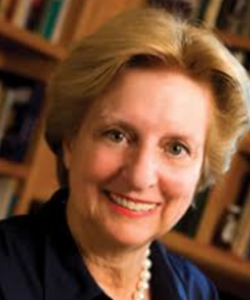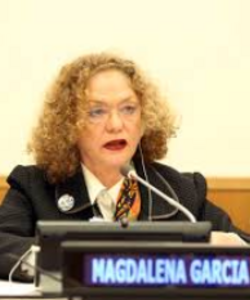Leadership

Ms. Dyan Currie
Co-Chair, Stakeholder Advisory Group
Dyan is an experienced planning executive with extensive cutting edge national and international experience in the planning sector. She enjoys a strong professional network with government, development industry and planning professionals. She is a member of an expert panel for Habitat III. She represents 40,000 planners as President of the Commonwealth Association of Planners and is the Chief Planner for the City of Brisbane (Australia's largest Local Government Authority).

Prof. Siraj Sait
Co-Chair, Stakeholder Advisory Group
Prof. Siraj Sait is a leading development expert and human rights lawyer and has experience working with the UN, governments and the business community. He is Director of Research at the Royal Docks School of Business and Law at the University of East London where he also heads the Centre for Islamic Finance, Law and Communities. He is a founder member of the Global Land Tool Network. His appointments include Special Public Prosecutor, Chair of Somalia Benadir laws drafting committee and the United Nations high-level Advisory Group on Gender Issues and Director of the Noon Centre of Equality and Diversity in the UK. He leads work on gender equality, youth, human rights, urban governance, climate change, conflict and land rights.

Dr. Eugenie Birch
Professor Birch is President of the General Assembly of Partners and Lawrence C. Nussdorf chair of Urban Research and Education at the University of Pennsylvania. She also serves as chair of the Graduate Group in City and Regional Planning, co-director for the Penn Institute for Urban Research, and co-editor of City in the 21st Century Series, University of Penn Press and the SSRN Urban Research e-journal.

Prof. Sahar Attia
Dr. Sahar Attia, is an Emeritus Professor of urban design at the Faculty of Engineering, Cairo University . She has 40 years of experience practicing and teaching urban planning, urban design, and architecture. She is the co- chair of the University Network Initiative -UN Habitat (UNI), and a board member in Ecocity Builders, a non-profit public benefit corporation in San Francisco California, United States. She has been elected Co-chair for the Research and Academia Constituent group in the General Assembly of Partners (GAP) 2014-2017. In January 2021, she was been appointed a member of the Egyptian Parliament, and a member in the Science & technology working group in the Inter Parliamentary Union (IPU).

Ms. Magdalena García Hernández
Magdalena is an Economist with studies in Commercial Engineering. She created a Virtual Campus that focuses on training to influence public policies. She has supported the creation of urban observatories to monitor public spending for equality between women and men. She has been Director of Economic Studies at the Faculty of Economics of the University of Puebla. She founded MIRA (2010), a network on economic-budgetary issues in a framework of human rights f, United Nations guidelines and conventions and with special focus on gender.

Ms. Alice Charles
Ms. Alice Charles has 18 years’ experience in the areas of cities and urban development, town planning, real estate, infrastructure, environment, climate change and public policy. She leads the work in the World Economic Forum's Platform for Cities, Infrastructure and Urban Services including the Global Future Council on Cities and Urbanization, production of city and urban development content and curation of events at World Economic Forum Summits. She is an External Board Member of the National Asset Management Agency (NAMA), Ireland.

Ms. Emilia Saiz
Emilia Sáiz is Secretary-General of United Cities and Local Governments (UCLG). She has worked with the international movement of local and regional governments in different capacities since 1997, leading programmes and initiatives on institutional capacity building, the participation of women in local decision-making and decentralized cooperation. She played a critical role in setting up the Global Taskforce of Local and Regional Governments and represented local and regional governments in international processes such as the Rio and Beijing +20, the Climate Agreement, SDGs and Habitat III and facilitated contributions from local constituencies to United Nations processes.

Ms. Rose Molokoane
Ms. Rose Molokoane is a coordinator of the South African Federation of the Urban Poor (FEDUP), and on the Management Committee of Slum Dwellers International. She has served as co-chair of the Grassroots Constituency Group of the General Assembly of Partners throughout the Habitat III preparatory processes. She is a resident and member of the Oukasie savings scheme in a slum settlement outside Pretoria. A veteran of the anti-apartheid struggle, she is one of the most internationally recognized grassroots activists involved in land tenure and housing issues. FEDUP has helped more than 150,000 squatters, the vast majority of whom are women, to pool their savings.